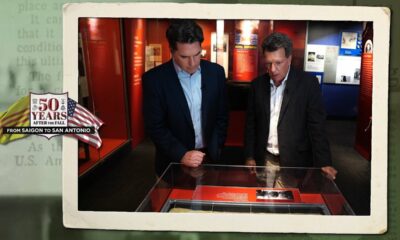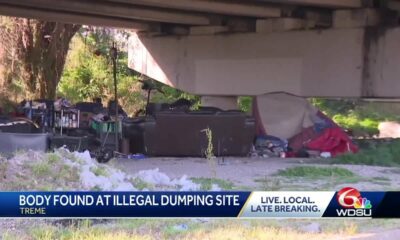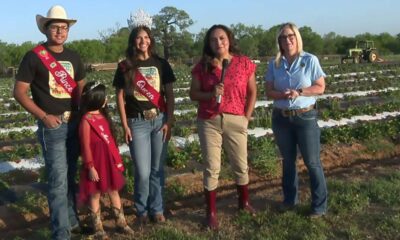floridaphoenix.com – Jennifer Shutt – 2025-04-16 16:40:00
by Jennifer Shutt, Florida Phoenix
April 16, 2025
WASHINGTON — U.S. Health and Human Services Secretary Robert F. Kennedy Jr. announced Wednesday the department will shift its research into autism toward potential environmental causes, though he declined to say exactly what the Trump administration would do if certain industries or pollutants were found responsible.
Kennedy, an environmental lawyer with no medical or research training, declared that autism is a preventable disease, argued research into genetic causes is a “dead end” and asserted that “we know it’s environmental exposure,” before saying HHS would fund “a series of new studies to identify precisely what the environmental toxins are that are causing it.”
“This has not been done before,” Kennedy said. “We’re going to do it in a thorough and comprehensive way and we’re going to get back with an answer to the American people very, very quickly.”
Kennedy said during his first press conference since receiving Senate confirmation that he wanted researchers to look into numerous potential factors, including mold, food additives, pesticides, air, water, medicines, ultrasound, age of parents, obesity in parents and diabetes in parents.
He pledged to have “some of the answers by September,” though he added the research will “be an evolving process.”
Kennedy appeared confident in his personal assessment that environmental factors lead to autism, without attributing that belief to any one industry or contaminant.
“This is coming from an environmental toxin and somebody made a profit by putting that environmental toxin into our air, our water, our medicines, our food,” Kennedy said. “And it’s to their benefit to normalize it, to say, ‘This is all normal. It has always been here.’ But that’s not good for our country.”
Autism experts, however, cast doubt on Kennedy’s assertion that environmental factors lead to autism and questioned his proposed timeline to prove such a link.
When asked by a reporter what exactly the Trump administration would do if research found conclusive evidence that one specific industry or pollutant was causing autism, Kennedy didn’t say whether HHS would push to ban it or close down any businesses.
“I think we’re going to figure out a way to make pressure on them to remove it,” he said. “I think also there will be market forces that also exert pressure on them to remove it.”
Research difficult
Catherine Lord, professor of psychiatry with the school of medicine at the University of California, Los Angeles, said during an interview with States Newsroom following Kennedy’s remarks that trying to reach a definitive cause of autism before September was an “utterly ridiculous” timeline.
Lord said “the most likely hypothesis is that there may be interactions between genetics and, for example, environmental exposures, or even experiences like extreme prematurity.”
But she noted that studying the impact of environmental contaminants on people’s health, or a complex diagnosis like autism, is challenging because scientists obviously cannot expose people to toxins.
“It’s so difficult to do that work well, and people do it, but they can’t do it quickly,” Lord said. “And so I think that we do need work in that area, and I think it has been funded in the last few years. It just hasn’t come out with anything that is earth-shattering. It’s more the same thing, which is that if you’re exposed to something bad, your chances of having a child with any kind of neurodevelopmental disorder is going to go up.”
Lord expressed concern about moving funding and research away from genetic factors, saying “we do know that autism is genetic, so I think that is not under question.”
“I think the genetic work was moving forward,” she said. “It’s a slow pace, again, because they’re addressing so many different genetic patterns. But I think that at least there’s clear progress within this science.”
Limits funding for genetic research
Eric Fombonne, professor emeritus of psychiatry at Oregon Health and Sciences University, said during an interview that it was unwise for Kennedy to say there would be some answers about autism within a few months.
“It’s ridiculous to say that he’s going to unravel the etiology of autism in six months,” Fombonne said. “I mean, he could give, like, all the money of the world to any lab or any person. They could never report any results before several years from now, at the minimum.”
The pace of medical research, he said, is slow and Kennedy’s comments show “a complete ignorance and disregard for science and what we do and how complicated it is and the time it takes.”
Directing research dollars toward possible environmental contributors to autism will also limit the amount of funding available for genetic research, which Fombonne said “has been incredibly productive.”
“The pie is limited,” Fombonne said. “So if you move funds from genetic research to environmental research, you’re going to slow down the pace of genetic research.”
Fombonne explained that research into genetics and autism is “quite complicated” and has shown that not all genetic mechanisms are “the same across different families.”
“So it’s a very complex puzzle. And as you know, the brain is a very hard organ to study. So understanding the pathophysiology, which is associated with these gene variants, is a very hard process,” he said. “But we are doing that and we are progressing. And this has been paying off enormously over the last 20 or 30 years.”
Fombonne wouldn’t make the same assessment of potential environmental factors, saying there are no signs of higher rates of autism in certain areas or certain time periods, like scientists have found for some other conditions.
“There is no evidence that there is a cluster of cases of kids who have been living in a polluted area, or exposed to particular environmental circumstances,” Fombonne said. “There is no starting point, which is strong, to start environmental research somewhere we can say is going to pay off.
“So it’s going to be very exploratory initially, which may be a good thing to do. But at least, let’s do it well, and most of the studies so far are short.”
Florida Phoenix is part of States Newsroom, a nonprofit news network supported by grants and a coalition of donors as a 501c(3) public charity. Florida Phoenix maintains editorial independence. Contact Editor Michael Moline for questions: info@floridaphoenix.com.
The post RFK Jr. to refocus federal autism research on environmental factors appeared first on floridaphoenix.com








































